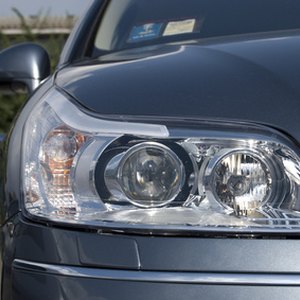
If you own or lease a vehicle in the state of Georgia, the law requires you to maintain auto insurance on the vehicle at all times. You must have continuous liability insurance coverage in order to legally drive your vehicle, register it and obtain Georgia license plates as well as renew or replace existing plates. The auto insurance cancellation policies in Georgia make sure that all drivers are in compliance with maintaining coverage.
Regulations for Insurers in Georgia
Auto insurance companies that operate in the state of Georgia are required by law to provide all insurance information through electronic transmission to the state's database. Once you obtain a new auto insurance policy in Georgia, your insurer has to send your policy information to the state within 30 days of when your coverage begins. Insurance companies are also required to report any changes to policies including additions, deletions, terminations and cancellations. Cancellation policies for insurers include that they have to report them to the state of Georgia within 30 days and if you get replacement coverage the new insurer will notify the state as well. The only exception to this requirement is for fleet and self-insured vehicles registered under the International Registration Plan. While these vehicles must also maintain auto insurance, the insurers are not obligated to report their policies to the state.
Georgia Insurance Database
The Georgia Electronic Insurance Compliance System is the insurance database the state uses to track all motor vehicle records and how they are kept up-to-date on every registered vehicle's auto insurance policy. Once your insurer transmits your insurance information along with your vehicle identification number to GEICS, your record will be updated with a valid insurance coverage indicator. You will be able to go the Georgia Department of Revenue website to check the status of your insurance but only your insurer can make any changes to your information. If you do not maintain auto insurance coverage you will not be able to renew your tags and risk your car being impounded or pay fines if you are involved in an accident.
Auto Insurance Cancellation Policies
Since the state of Georgia has this system in place, they will soon find out if you cancel your auto insurance policy or if it is terminated by the insurer. If you fail to pay your premiums your insurance will lapse and since there is no grace period your coverage will end immediately. The cancellation policies for your vehicle consist of you either immediately obtaining coverage from another carrier or voluntarily canceling your registration if the vehicle is not being driven. You are not allowed to operate a vehicle in Georgia without liability insurance coverage and your vehicle's registration will be suspended by the state if you do not maintain it.
References
- Car Insurance: Georgia Car Insurance
- Auto Quote Now: Georgia Auto Insurance Quotes
- Georgia Office of Insurance and Safety Fire Commissioner. "Automobile Insurance." Accessed May 3, 2020.
- Georgia Department of Revenue. "Insurance." Accessed May 3, 2020.
- Georgia Department of Revenue. "Insurance Card Requirement." Accessed May 3, 2020.
- Georgia Department of Revenue. "Acceptable Proof of Insurance." Accessed May 3, 2020.
- Georgia Department of Revenue. "Registration Suspension." Accessed May 3, 2020.
- Georgia Department of Revenue. "Registration Reinstatement After Suspension." Accessed May 3, 2020.
- Consumer Federation of America. "Penalties for Driving Without Auto Insurance by State," Page 4. Accessed May 3, 2020.
Writer Bio
Janise Smith began freelance writing in 2009. She has published poetry, short fiction and various articles, with her works appearing in "Metropolitan Woman" and the "Detroit Free Press." She earned a Bachelor of Arts in written communications with an emphasis on journalism, creative and technical writing from Eastern Michigan University.

